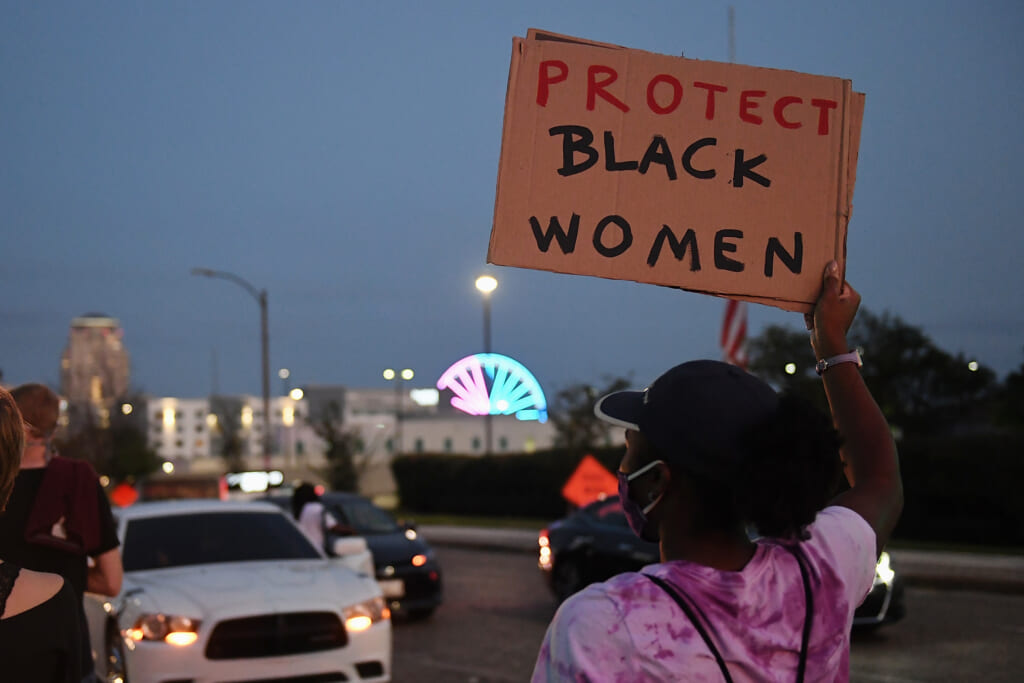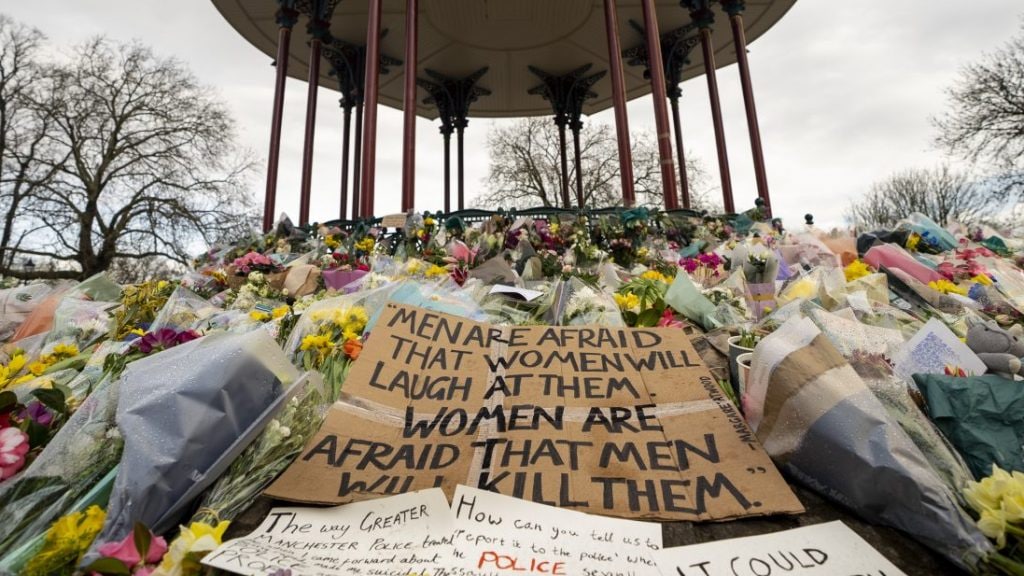Why it’s time for policymakers to improve protections for women
OPINION: As we close out Women’s History Month, the world should resolve to address and end violence against women
Over the past few days, many across the United States and London have been transfixed by the kidnapping and murder of Sarah Everard. Her death signified the dangers that women across the globe face. While being a woman has long been a risk factor for crime, the fact that the suspect is a member of the London Metropolitan Police Department makes Everard’s death even more chilling.
Here in the states, many were left reeling following fatal shootings at three spas in the Atlanta Metropolitan region that killed 6 women and 2 men, almost all of whom were Asian.
Read More: Thousands gather in London to protest racial injustice
As we close out Women’s History Month, the world should resolve to address and end violence against women. It is understandable to celebrate women’s remarkable accomplishments, but society would enable more women to reach their full potential if violence against women was viewed as a public health crisis and aggressively addressed.
One cannot think of Everard and the many women and women of color who have been victimized by crime and not come to this conclusion.

Everard’s passing was a reminder of the ever-present dangers women face. The World Health Organization indicates that globally 1 in 3 women have experienced either physical and/or sexual intimate partner or non-partner sexual violence in their lifetime. The organization also reported that “worldwide, almost one-third (27%) of women aged 15-49 years who have been in a relationship report that they have been subjected to some form of physical and/or sexual violence by their intimate partner.”
The statistics on the impact of gun violence on women are equally troublesome. Last year, HuffPost reported that annually 760 people are killed by intimate partners who use a firearm in the commission of the crime. And 80% of the people killed by firearms annually in the U.S. by intimate partners are women. What is more, a woman is fatally shot by a current or former partner every 16 hours.
Read More: Man kills wife, 2 children in murder-suicide after she posts about abuse
Being proximate to violent crime can cause everything from post-traumatic stress disorder to an inability to focus at work and school to reproductive challenges. Women suffering from intimate partner violence in pregnancy are also at higher risk of “miscarriage, stillbirth, pre-term delivery and low birth weight babies,” the World Health Organization found.
That this nation, and the world really, has allowed the proliferation of violence against women is astounding – especially given the fact that there are things policymakers and community leaders can do to make society safer for women.

First and foremost, legislators across the country must ensure stronger safety nets for women and children – safety nets that reduce poverty and give children and families a real chance to thrive. Policies such as Medicare for All, paid family and medical leave, and minimum wage standards must be prioritized, as should supportive services such as increased funding for child care assistance.
Since many victims of violent crime experience severe trauma, federal, state and local governments also must allocate more resources to trauma recovery. Ohio is one of two states with trauma recovery services. And even though the state has five centers, those centers and their corresponding community partners must be well funded to continue making an impact.
And to be clear, one need not experience the trauma directly to be traumatized. Merely living in a high-crime area can lead to illnesses such as depression and PTSD. “State of Opportunity,” a Michigan radio program, noted what many of us have suspected all along: “Living in an environment of poverty and violence can lead to post-traumatic stress disorder (PTSD) in African-American women with depressive symptoms, according to a recent study published in the Journal of Racial and Ethnic Health Disparities.
The study followed women who had mild to severe depressive symptoms, according to the Chicago Tribune. The researchers found 29% of the 72 African-American participants had PTSD and “an additional 7% of women exhibited a large number of symptoms that are part of a PTSD diagnosis.”

If the nation does not support women, it is unreasonable to expect families or communities to fare much better. For instance, many of the communities with high incidences of crime lack supportive services and resources to help residents cope with the violence they have experienced and prevent it from occurring in the future.
At a time when 85 million Americans have reported having difficulty paying household expenses, more must be done to provide for basic needs, which in turn will make our communities, including women and children, safer.
I am running for Congress to fight for resources to ensure that the people of Ohio’s 11th Congressional District have access to supportive services that will help them heal from crime and hardship and decrease the likelihood of it repeating.
This is a herculean task, but I am up for the job. I have never run from a challenge. I do not intend to start running now.

Nina Turner is a former Ohio State Senator and current candidate for Ohio’s 11th Congressional District.
Have you subscribed to theGrio’s podcast “Dear Culture”? Download our newest episodes now!
TheGrio is now on Apple TV, Amazon Fire, and Roku. Download theGrio today!
The post Why it’s time for policymakers to improve protections for women appeared first on TheGrio.

